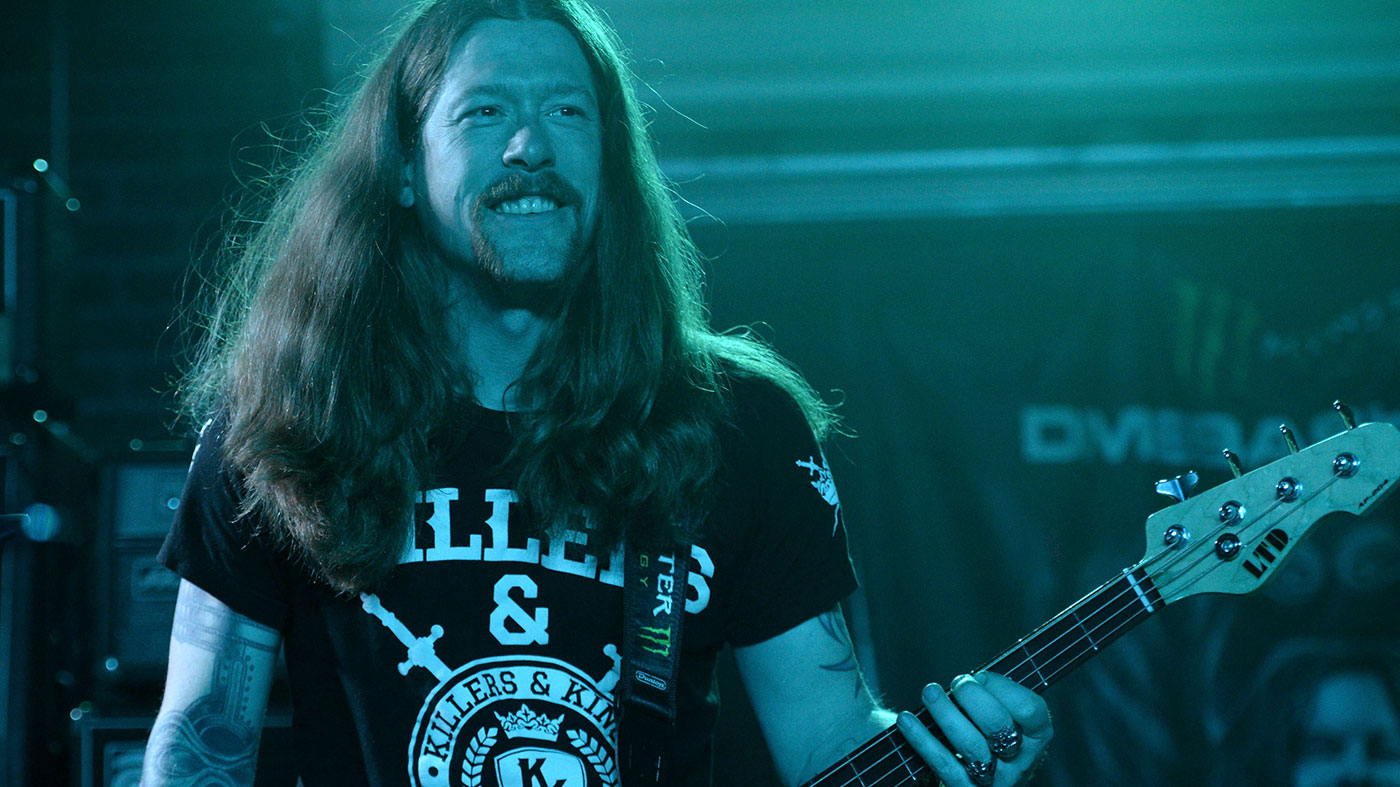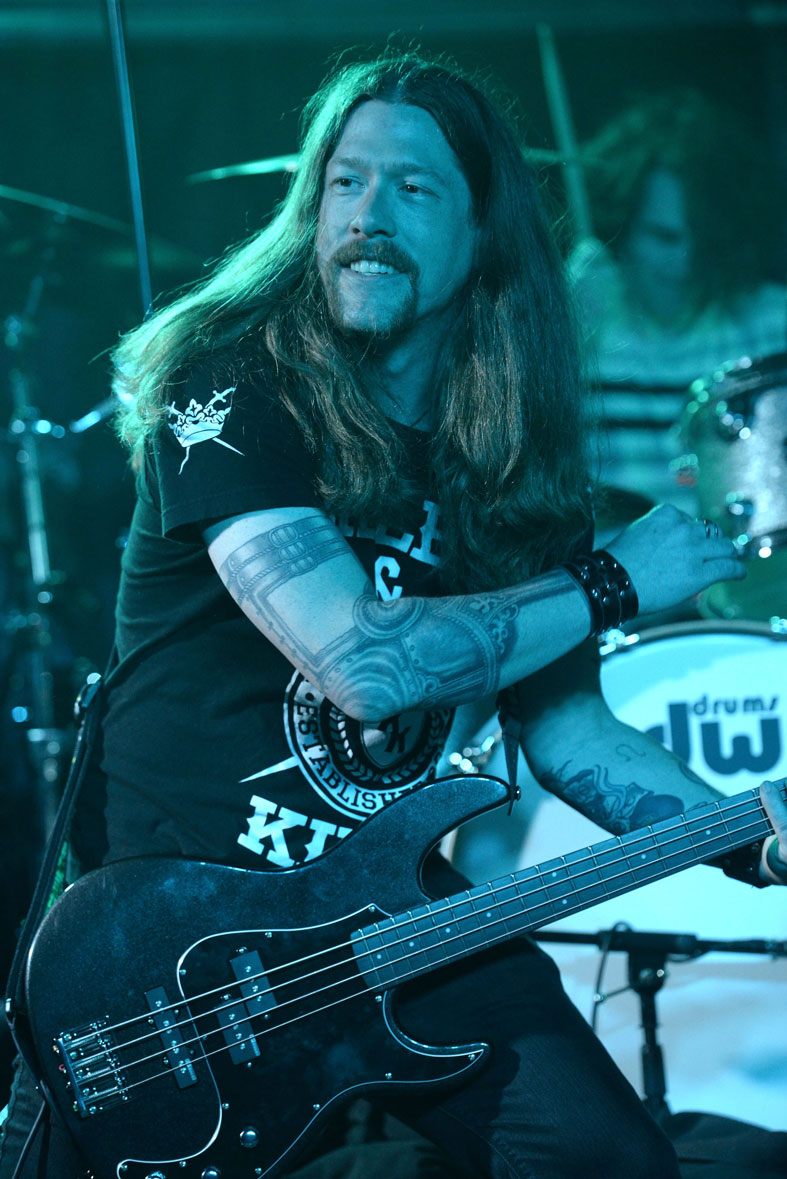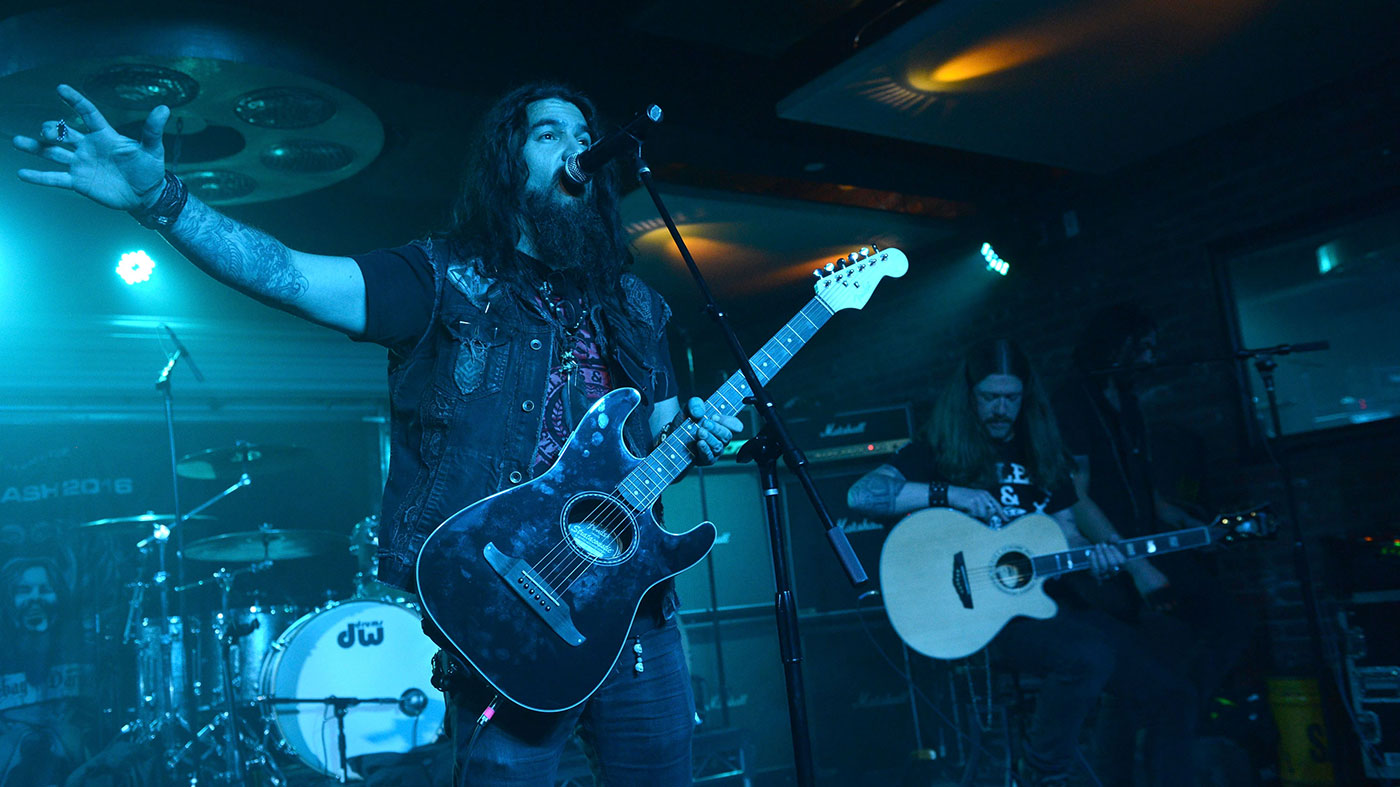Machine Head's Jared McEachern: “I told myself ‘I’m gonna give it a shot - and whatever happens, at least I tried’”
The bassist on his key gear and landing the gig with the metal titans

Want all the hottest music and gear news, reviews, deals, features and more, direct to your inbox? Sign up here.
You are now subscribed
Your newsletter sign-up was successful
California metal monsters Machine Head return with a new album, loaded with huge sounds from bassist Jared McEachern.
Far from being just another heavy metal band, the American quartet Machine Head occupy a unique niche in the pantheon of metal music. Their music straddles several styles, from groove to thrash and beyond, and the musicianship they bring to the table is astounding, but it’s their place on the metal timeline that makes them stand out.
It's a polished but aggressive form of modern metal that requires maximum precision from McEachern
Formed in 1991, the group - currently Robb Flynn (vocals, guitar), Phil Demmel (guitar), Jared McEachern (bass) and Dave McClain (drums) - effectively landed squarely between the end of thrash and the arrival of grunge, but were already up and running by the time nu-metal arrived a few years later.
Mostly avoiding that lamentable sound, Machine Head stepped up their game in the 2000s, playing a polished but aggressive form of modern metal that requires maximum precision from McEachern, just as it did from his predecessor Adam Duce.
McEachern, an affable fellow who made his bones with a band called Sanctity before stepping into Duce’s place in Machine Head in 2013, appeared on the Bloodstone & Diamonds album a year later and now lays down the low end on the new album, Catharsis, released this month. His audition for Machine Head is available to view on Youtube; you’ll appreciate the chap’s phenomenal bass skills when you see it. Talking of which...
There’s loads of cool bass on the new album, Jared.
“Robb and I talked before the recording and he told me that he wanted to feature the bass a little more on this album, which is cool. I’m really pleased with it. He produced it, with help from our engineer, so it’s all done in-house.
Want all the hottest music and gear news, reviews, deals, features and more, direct to your inbox? Sign up here.
“On certain parts that require those really tight, syncopated bass parts where I lock in with Dave, a couple of times Robb was like, ‘You can do that again a bit tighter’, or on the other hand he might say, ‘That sounds cool, now try something else.’ I had most of the parts all figured out, but for some of them there was some room to play around and be a little more open, so we took the time to do that.”
Did you use an amp in the studio?
“There was no amp - I played through an Avalon DI. It’s not just a DI; it adds its own compression and grit, which we really liked. I used a Yamaha BB2024 bass in the studio, although I’m actually with ESP for all my other stuff. That Yamaha does this thing that Robb really loves, that kind of midrange growl that fits really well with the guitars. Adam used that bass live for a while, and so did I, but I play ESP basses live.”

Which ESP do you play?
“I use the E2 J4 model. It’s their Jazz shape, a little bit reworked from the classic Jazz. The model that I have comes with active Seymour Duncans. I travel with three or four of them; a main bass in our normal tuning, a backup and a five-string for anything that’s really tuned down. We have a couple of songs that approach low F! I use a 130 gauge B-string for those...”
How do you amplify your basses on tour?
“I use a blend of a Kemper [amp simulator] and the DI live. In our jam room, though, I have a small head and cab, just so I have something pushing air. I picked up the Mesa Subway 800 head and the little 1x10 cab that comes with it. It’s great for the jam room, I just run the Kemper through it.”
Does the Kemper deliver a completely accurate tone?
The Kemper does get fantastic tones, but everyone I talk to says it’s 95 per cent there - there’s just a tiny thing missing
“The Kemper does get fantastic tones, but everyone I talk to says it’s 95 per cent there - there’s just a tiny thing missing - but they’re extremely portable, and great for travelling if you have a lot of fly dates. My tone has a little bit of compression and distortion, but I’m looking to add a bit of chorus and fuzz and maybe a wah. One of the new songs has a cool background wah going on, which I’d like to do live - so I’m working on introducing those into my chain. I already have a Boss chorus and I’m looking to get the Dunlop bass wah, which I really like.”
How did you get into bass?
“I grew up in Virginia and played in the school orchestra when I was in fifth and sixth grade, aged 10 and 11, and when I went to middle school the teacher of that orchestra told me they needed an upright bass player, so I volunteered. I also got my first bass guitar that year, a Fender Mustang, and I got really into it and started up my first band at the age of 12. I moved to a Fender Jazz after that, having borrowed one from school and really liked it.
“I learned really early on that those basses feel super comfortable to me. I also played an ESP B205 with active EMG soapbars in it; it was just a $500 bass, but it was the first one that I bought with my own money. I played that for quite a while. I had a Dean five-string for a while; in fact it was the bass that I used to audition for Machine Head.”
Did you evolve quickly as a bass player?
“I had classical training, so I took to it very easily and really enjoyed it. I was writing original songs with my drummer at the age of 13! Just terrible, wannabe rock songs. We were influenced by Alice In Chains and Green Day and the bands of the day. I was actually playing bass more like a guitar.
“I had a little 10” Traynor practice amp and I would turn up the gain and the distortion on it, playing powerchords. I knew I loved the bass, but I wasn’t particularly informed about what the bass did; I was heavily influenced by Cliff Burton at this point. That raw, crazy, distorted madness that he had - I was definitely trying to emulate a bit of that.”

Have you tried out Cliff’s signature Morley wah?
“Oh, I definitely have one of those. It’s designed for Cliff’s exact tone; as soon as you press down on it, it’s wide open and screaming. It’s cool, and I like it, but it’s not exactly subtle, because it goes from super closed to way open really fast. The Dunlop’s overall sweep is a little more gradual.”
Who else influenced you?
I was never sure that I was going to get the job; I just told myself that I was going to go through the process step by step, and enjoy it
“A lot of the standard metal guys - Mike Inez, Peter Steele, Steve Harris, of course - who you have to be influenced by because they’re so prominent. Later it was Victor Wooten too, and later Charlie Mingus as my education continued. I haven’t got too deep into slap bass yet, because I was never in a lot of situations where it was required or requested.
“I’ve played a lot of rock and a lot of metal, and even when I was in jazz band at school I was playing upright bass. I’ve been moving in that direction lately though, checking out online videos. It never hurts to gain extra skills, even though I may never ever use it in Machine Head.”
You successfully auditioned for Machine Head in 2013. Did you already know them before that?
“I knew them a little bit, because my old band Sanctity had opened for them in 2007. At the time, Adam Duce had a broken leg, so they had Brandon Sigmund from Hostility playing bass. Monte Conner [then of Roadrunner Records] suggested to Robb that maybe I could fill in on backup vocals. I was on tour with two bands at the time, basically. So seven or eight years later, my old drummer from Sanctity called me out of the blue and told me that Machine Head were holding auditions for bass players.
“Our old manager told me he’d check it out and a few days later I got a call from Dave McClain. Dave told me that I should totally go for it and that I needed to focus more on the backing vocals than the bass parts, because he was sure that I could take care of the bass but that the vocals were also going to be really important.”
Sounds nerve-wracking - was it?
“I told myself, ‘Fuck it, I’m gonna give it a shot - and whatever happens, at least I tried.’ I’m not really a nervous person; I was more excited at getting the chance to do it. I was never sure that I was going to get the job; I just told myself that I was going to go through the process step by step, and enjoy it.
“I practised for a few weeks and my friend shot my video, which got a positive response and I got the call to fly to California for a live audition. I made sure I knew the songs in and out, had my audition - and here we are!”
Catharsis is out now on Nuclear Blast. Machine Head tour the UK in May - tickets are available from Live Nation.

